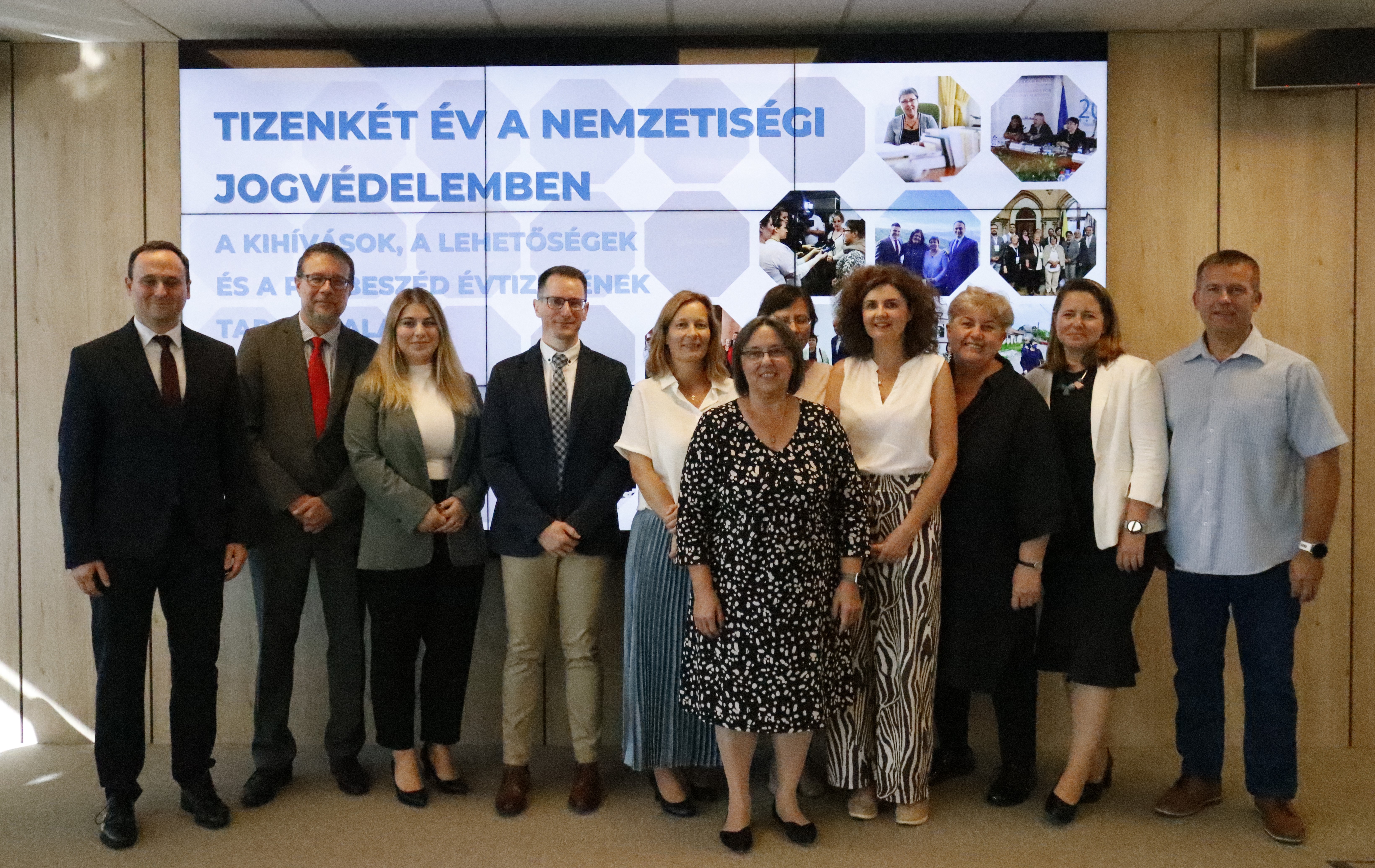Twelve years of protecting nationality rights – mandate-closing conference - NJBH-EN
null Twelve years of protecting nationality rights – mandate-closing conference
The Minority Ombudsman's Secretariat organised a conference entitled "Twelve years of protecting nationality rights – challenges, opportunities and experiences from a decade of dialogue" at the Office of the Commissioner for Fundamental Rights on 19 September 2025, with nearly 100 partners in attendance. The event was held to mark the end of the twelve-year term of Elisabeth Sándor-Szalay as Minority Ombudsman on 3 November 2025. Before the end of her term, she intended to review the most important events and achievements of the past twelve years with her professional partners at a closing conference, thereby thanking everyone involved for their cooperation.
The past twelve years have been far from a period of balanced and quiet events: domestic nationalities have faced numerous challenges that have left their mark on the lives of communities in both the short and long term. However, each crisis also presented an opportunity. Whether in terms of legislation, law enforcement or legal protection, both long-standing and new problems have spurred us all to seek solutions intensively, engage in dialogue, learn about each other's perspectives, reach useful compromises and form new partnerships.
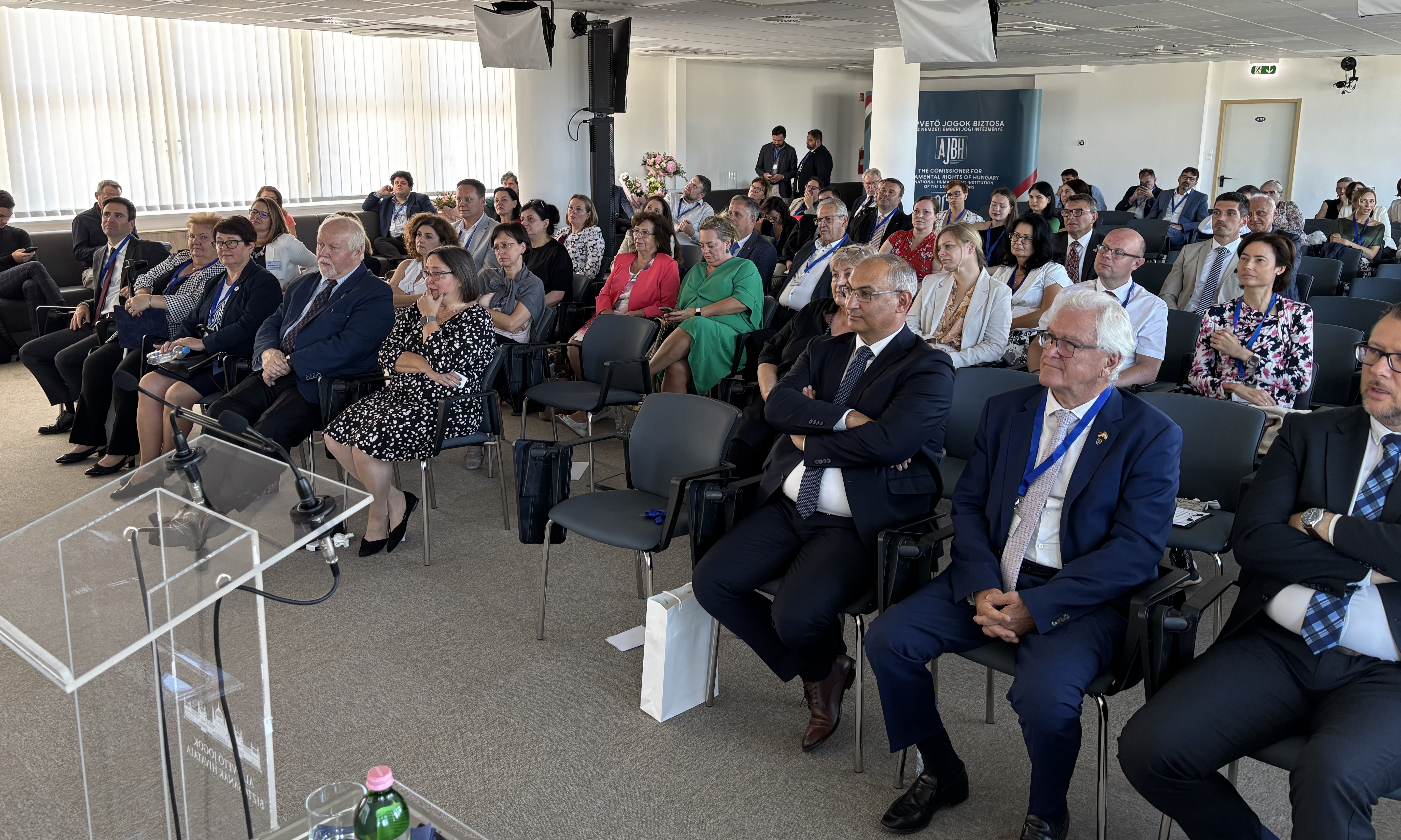
As a result of the above, the field of nationality law has become one of the most complex segments of the Hungarian legal system. Its stable historical and broad social foundations are coupled with a capacity for continuous and dynamic renewal: it is a sensitive yet strong regulatory environment that provides a basis for the effective enforcement of the rights and interests of nearly one million people.
Over the past twelve years, the Minority Ombudsman has engaged in intensive and continuous professional dialogue with representatives of the thirteen nationality communities in Hungary, as well as with representatives of academic, church and civil society organisations dealing with nationality rights, equal treatment and equal opportunities issues. Long-term partnerships and mutually beneficial cooperation have been established through individual and community complaints, personal consultations aimed at finding solutions, round-table discussions, cultural events showcasing our common values, and conferences addressing legal and social issues that need to be clarified.
The conference, attended by nearly 100 people, was both a professional losing event and a farewell. A large number of elected representatives of domestic national communities, government experts working in the field of national rights, policy makers and relevant civil society organisations were present.
The conference participants were first welcomed by Ákos Kozma, Commissioner for Fundamental Rights and elected justice of the Constitutional Court, who emphasised that, as ombudsman, he had always been able to count on the excellent professional work of the Minority Ombudsman. As a token of his appreciation and gratitude, he awarded Elisabeth Sándor-Szalay the Justitia Regnorum Fundamentum prize.
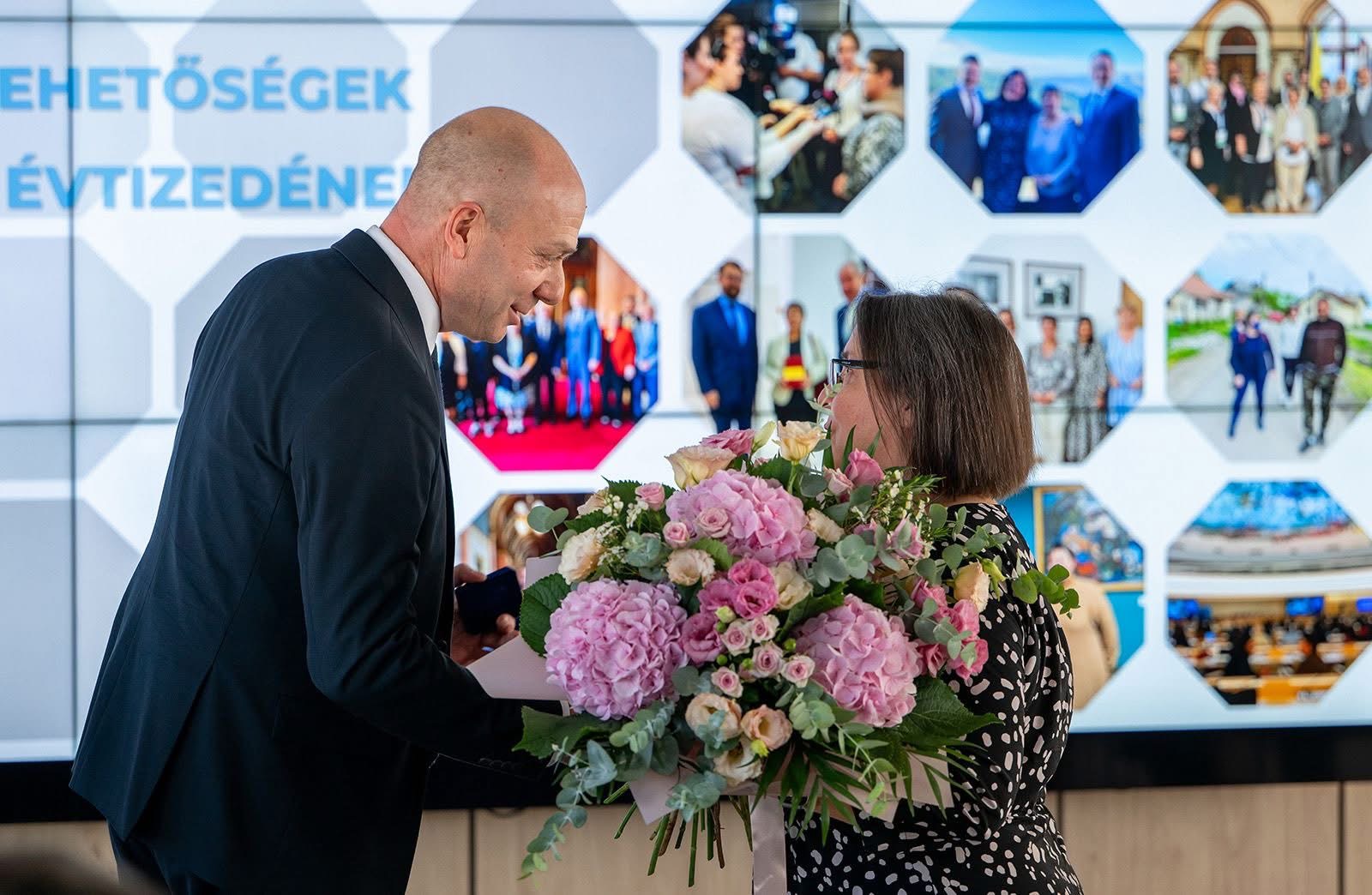
Gyula Bándi, Ombudsman for Future Generations recalled his long-standing professional relationship with the Minority Ombudsman, emphasising that the protection of the rights of future generations is in many ways intertwined with the protection of nationality rights. He emphasised that their smooth professional cooperation in both areas of law had contributed to the effectiveness of their work in protecting rights.
The speeches by the Commissioner and the Deputy Commissioner were followed by a closing presentation by Elisabeth Sándor-Szalay. The Minority Ombudsman gave an emotional welcome to those present, emphasising in her speech that it would be impossible to summarise her professional work over the past decade. Instead, she emphasised the role and merits of her colleagues and professional partners in their work to protect nationality rights, in the creation of nearly three thousand pages of professional documents, and in the organisation of countless events and professional meetings. Of course, she was unable to go into detail on specific cases and professional materials, but she did present some statistical data to illustrate the significance of the joint reports, general comments and closing letters containing recommendations for law enforcement issued since 2013, as well as their effects known to date. With regard to case load, she illustrated the distribution of her work as Minority Ombudsman in the areas of cultural and linguistic rights, self-government rights, nationality education, segregation and equal treatment by highlighting only the most important aspects.
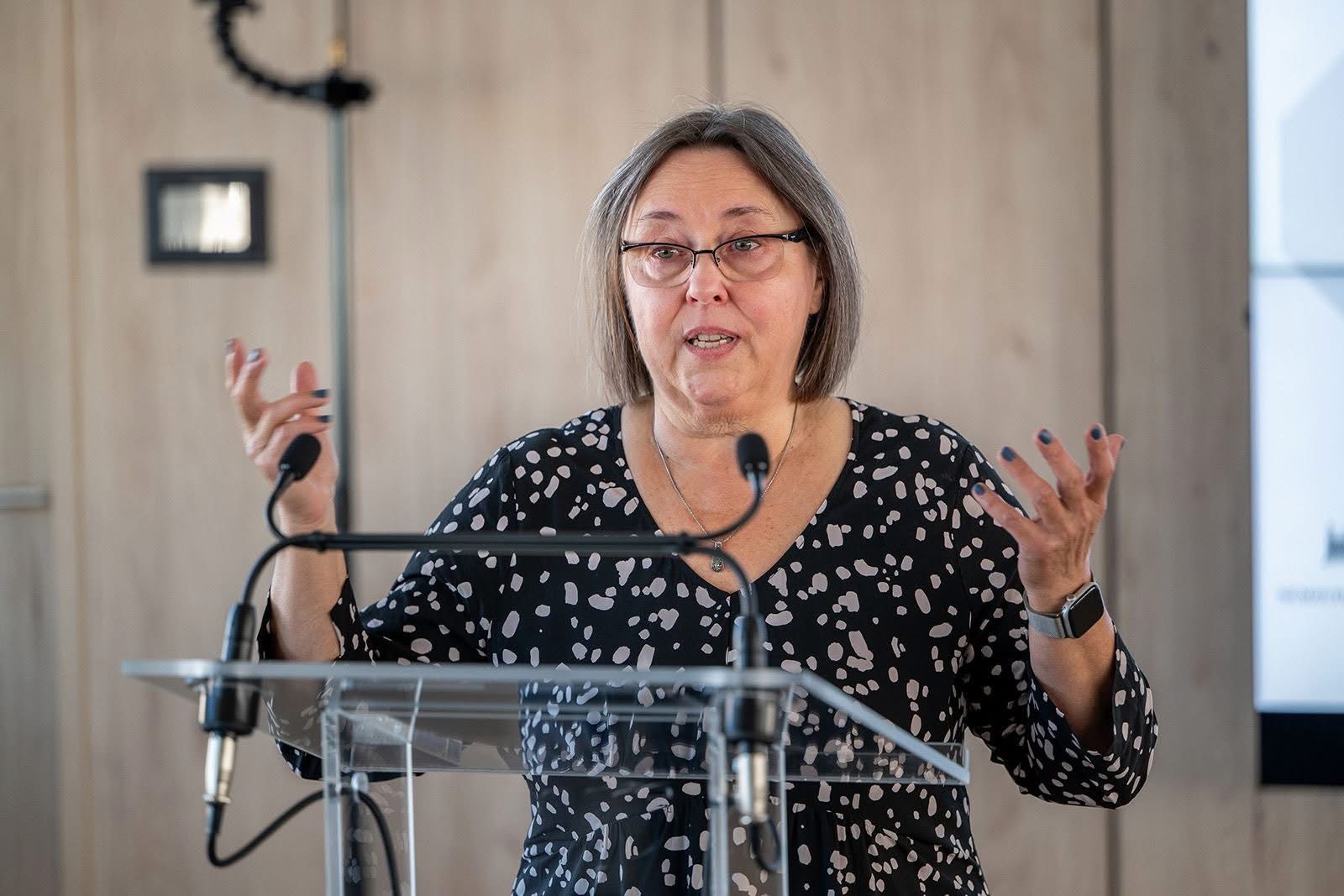
The next speaker, Tamás Kádár, co-director of Equinet (European Network of Equality Bodies), looked back on his work with the Minority Ombudsman, which was particularly significant in the context of cooperation on European-level initiatives aimed at protecting the Roma community as a particularly disadvantaged minority. He also emphasised that the Minority Ombudsman contributed to the protection of nationality rights as a regular member of the Advisory Committee of the Council of Europe's Framework Convention for the Protection of National Minorities.
Attila Sztojka, Member of Parliament and State Secretary for Social Opportunities and Roma Relations at the Ministry of the Interior, then welcomed the conference participants and thanked the Minority Ombudsman for her dedicated professional work, with particular reference to her work in protecting the rights of the Roma community in Hungary. He emphasised that despite the achievements of recent years in integrating our disadvantaged Roma people, we still face numerous challenges, and in identifying these, investigating complaints, promoting dialogue between the parties concerned, and providing professional forums for this purpose, Elisabeth Sándor-Szalay has made invaluable contributions during her twelve-year term of office.
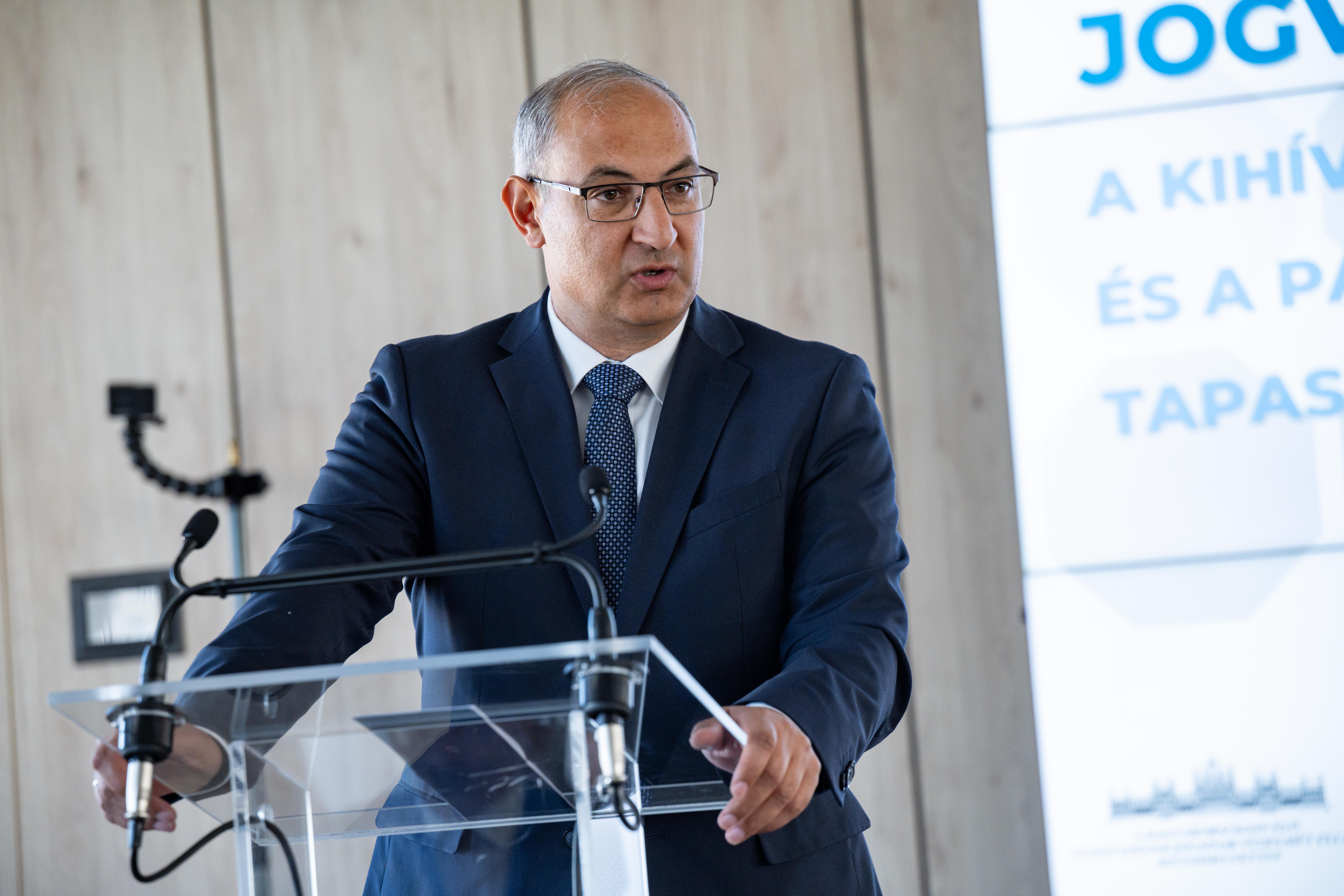
Zoltán Fürjes, Deputy State Secretary for Church and Nationality Relations at the Prime Minister's Office, recalled moments of cooperation with the Minority Ombudsman, highlighting countless joint events, nationality programmes, professional dialogues and legislative consultations, where he had become convinced of Elisabeth Sándor-Szalay's commitment to protecting the rights of all nationality communities in Hungary.
On behalf of the Parliament’s Committee on Nationalities in Hungary, Imre Ritter, Member of Parliament and Chairman of the Committee, expressed his gratitude for the exemplary professional cooperation developed over the past years. He emphasised that this cooperation provided a secure background for national minority advocates and the nationality MP during government consultations on nationality rights issues, and that it had been possible to establish effective professional cooperation – as well as genuinely good human and partnership relations – in all cases in identifying the challenges and legal inconsistencies affecting their nationality communities and possible solutions. He expressed his hope that this high-quality work would continue in the future between the newly elected Minority Ombudsman and the Committee on Nationalities in Hungary.
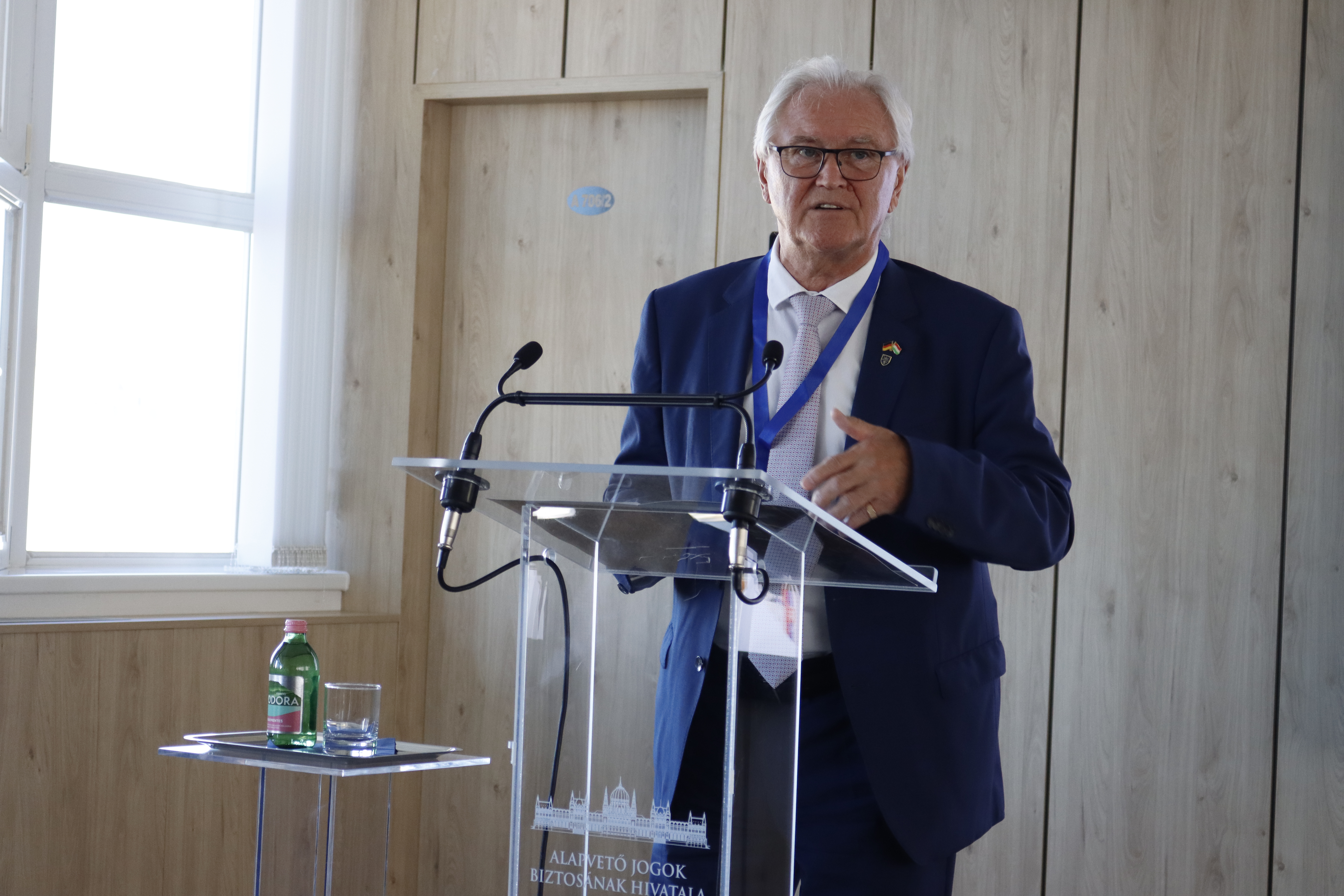
On behalf of the National Association of Nationality Self-Governments (ONÖSZ), Erzsébet Hollerné Racskó, president of the organisation and head of the National-level Slovak Self-Government, expressed her gratitude for the support given to the work of the nationality self-governments and for the activities that always put dialogue at the forefront. She emphasised that the professional cooperation established with the Minority Ombudsman and her colleagues, based on solid foundations, had been of great help to ONÖSZ, which had been awarded the Justitia Regnorum Fundamentum prize.
The last speaker of the morning session was Ibolya Englenderné Hock, President of the National Council of Nationalities and the National-level Self-Government of Germans in Hungary, emphasised that the professional documents published by the Minority Ombudsman dealing with the problems of nationality education and training have provided useful input for the work of the National Council of Nationalities. Speaking on behalf of the German community in Hungary, she stressed that, as the nationality with the largest network of institutions, it is particularly important for them that the Minority Ombudsman's activities also focus on monitoring the work of the nationality self-governments that maintain these institutions and on identifying and investigating any complaints. Like the previous speakers, he also emphasised and expressed his gratitude for the good professional and personal cooperation with the Minority Ombudsman and expressed her hope that this joint work would continue in the future.
In the minutes before lunch, there was a surprise programme, with three short video messages addressed to the Minority Ombudsman: Petra Roter, current chair of the Advisory Committee to the Framework Convention for the Protection of National Minorities and professor at the University of Ljubljana, Francesco Palermo, former chair of the same committee and senior researcher at EURAC, and Marián Török, former secretary general of the Slovak Ombudsman's Office, greeted Elisabeth Sándor-Szalay. All three international experts recalled their professional cooperation with the Minority Ombudsman with words of gratitude and friendship.
After the lunch break, the event continued with a round table discussion on nationality rights. Olívia Schubert, Vice-President of the National-level Self-Government of Germans in Hungary and Vice-President of the Federal Union of European Nationalities (FUEN), gave a presentation as a guest speaker. In her speech, she emphasised the international dimension of the protection of national minority rights, highlighting the unique role played by FUEN as an umbrella organisation representing more than a hundred member organisations across Europe.
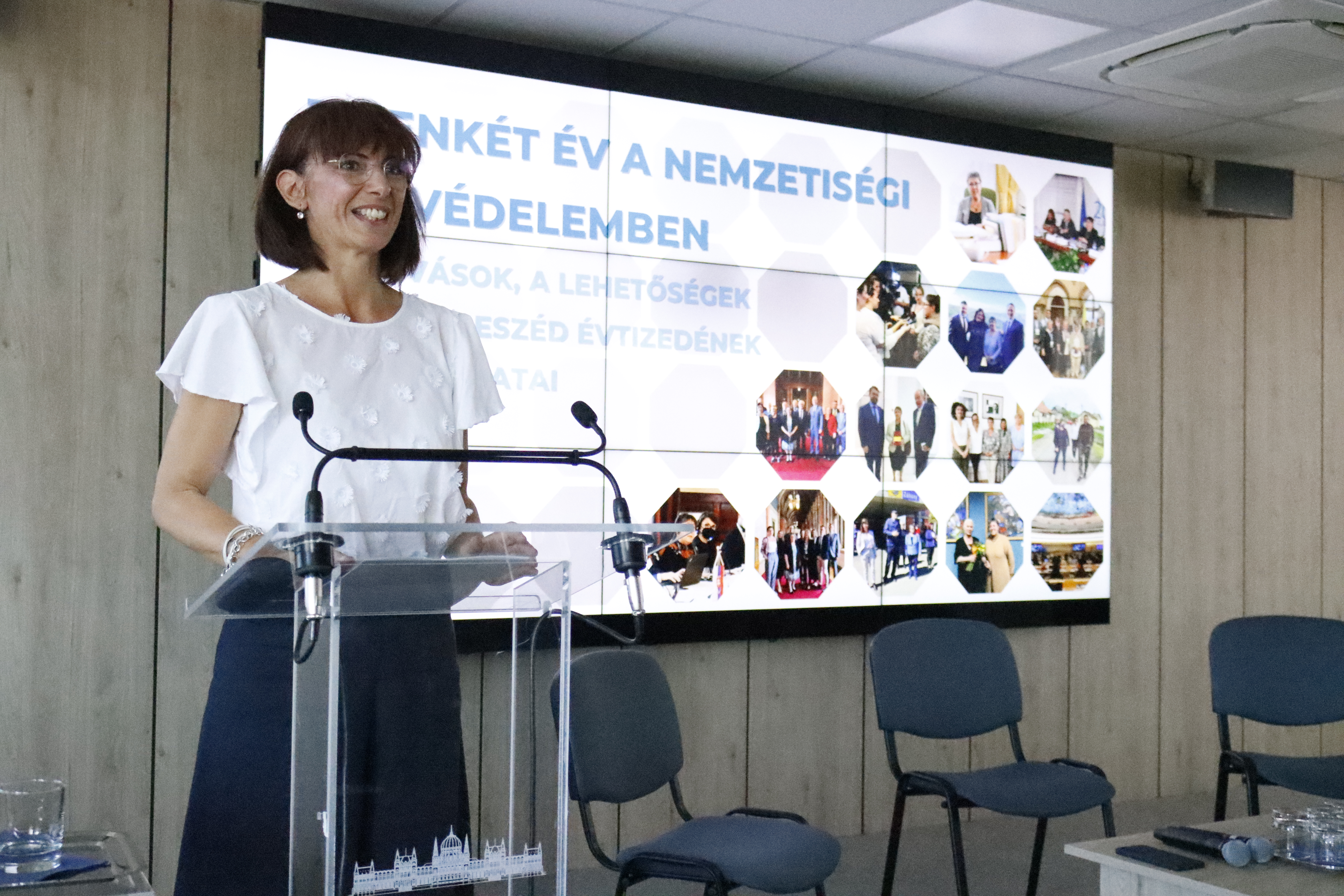
Following the introductory presentation, a discussion reviewing current issues related to nationality rights began, moderated by Balázs Kiss, head of the Minority Ombudsman's office, with the participation of Ágnes Sudár, deputy secretary of the National-level Self-Government of Germans in Hungary, Orsolya Szabó, chief of staff of the National-level Slovak Self-Government, and Balázs Vízi, research professor at the ELTE TK Minority Research Institute. The expert staff of the nationality self-governments analysed the practical challenges related to the operation of the domestic nationality institutional system, while Balázs Vízi emphasised the need for theoretical research and surveys on fundamental issues of minority rights. The participants agreed that over the past thirty years, Hungary has developed a coherent network for ensuring and enforcing nationality rights, in which all elements – such as government efforts to grant additional rights to nationalities, parliamentary representation of nationalities, the unique system of nationality self-governments, opportunities for the enforcement of individual and community nationality rights, and the activities of the Minority Ombudsman – have found their right place and work in a mutually reinforcing manner. However, all speakers emphasised that organisations and institutions representing the interests of nationality communities need to respond continuously to new challenges and be capable of renewal, and that it is essential to engage young people, as they will be the future experts in nationality law. In addition to the roundtable participants, Erzsébet Hollerné Racskó, President of the National-level Slovak Self-Government, Ibolya Englenderné Hock, President of the National-level Self-Government of Germans in Hungary, and Péró Lásztity, Director of the Serbian Institute, also joined the discussion with comments.
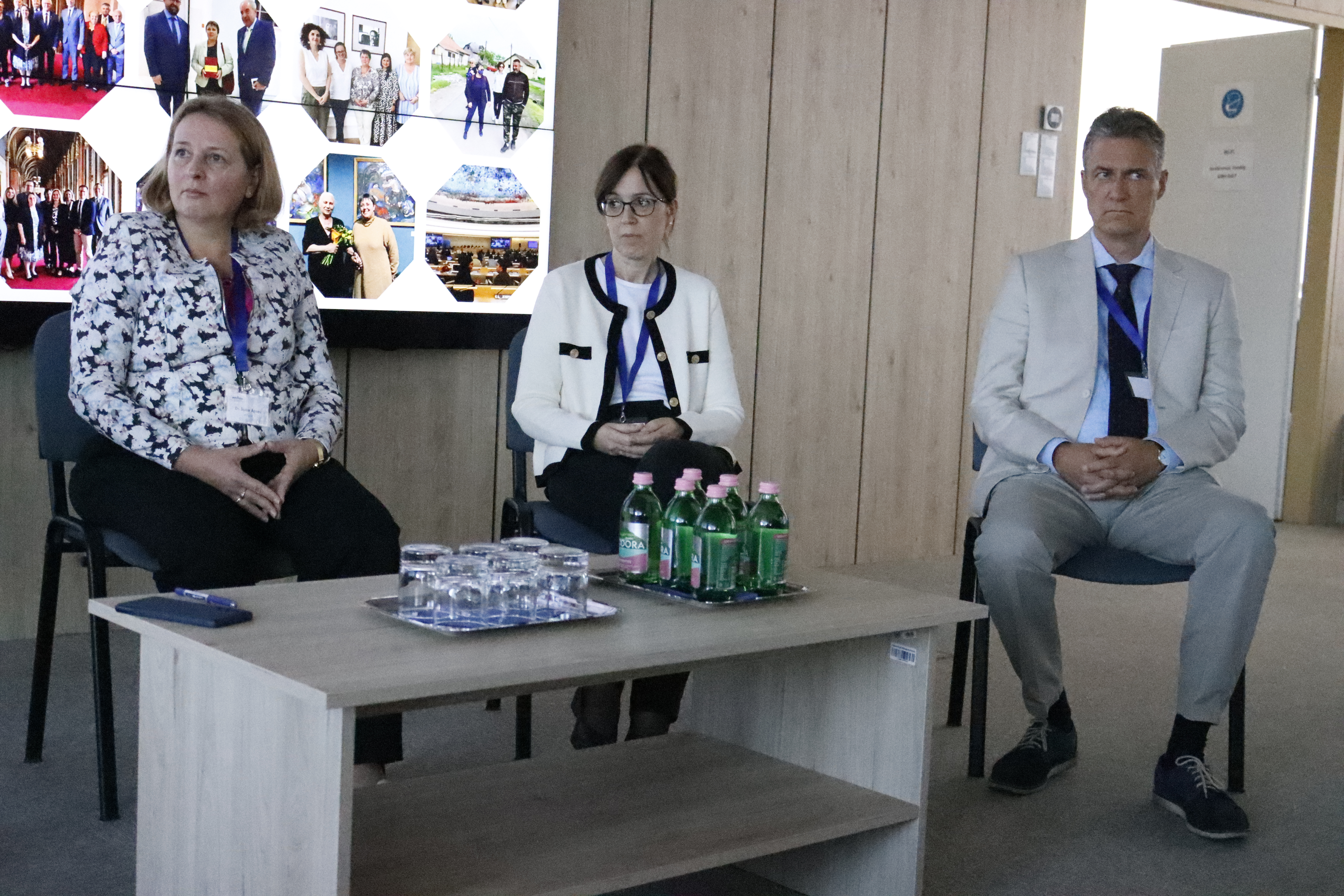
The topic of the second roundtable discussion at the conference was Roma ethnic culture, education and training. Iván Sörös, Head of Department at the Ministry of the Interior, representing the Department of Educational and Training Programmes for Equal Opportunities of the State Secretariat for Social Opportunities and Roma Relations, emphasised in his presentation that social innovation projects must create sustainable services. He reported on the Decade of Roma Integration programme, the National Strategy for Children 2007-2032, the EU framework for national Roma strategies and the National Social Inclusion Strategy 2011-2020, without hiding the challenges and tasks that still need to be urgently addressed.
Following his presentation, Tamás Török, Head of Secretariat and Head of Department at the Minority Ombudsman's Office, led a discussion with Tamás Eperjesi, Vice-President of the Small Region Developers' Professional Association, Adél Kegye, Chair of the Board of Trustees of the Rosa Parks Foundation, Edina Tordai, Roma Programme Manager at the Tom Lantos Institute, and Gergely Szanyi, Development Director at the Baptist Charity Service. Following the introductions, the discussion focused on the complex issue of school segregation affecting Roma children, with particular emphasis on the often-contradictory role played by church-run institutions. The participants, representing different perspectives, agreed that although the creation of inclusive, integrated education has been declared a legislative and regulatory objective, its practical implementation involves balancing numerous interests that are often in conflict with each other. It is a huge challenge for school leaders to strike a balance between Roma parents who want their children to have access to inclusive education that gives them opportunities, parents belonging to the majority society who expect high-quality education, preparation for further education and talent development, families who expect church-related and religious education, and those who emphasise the right to freedom of religion and free choice of school. The round table concluded that all this is only possible if there are committed professionals, "local heroes" who, through persistent work and tireless dialogue, are able to achieve high-level policy goals in line with the needs of the community, regional conditions, institutional frameworks and demographic processes.
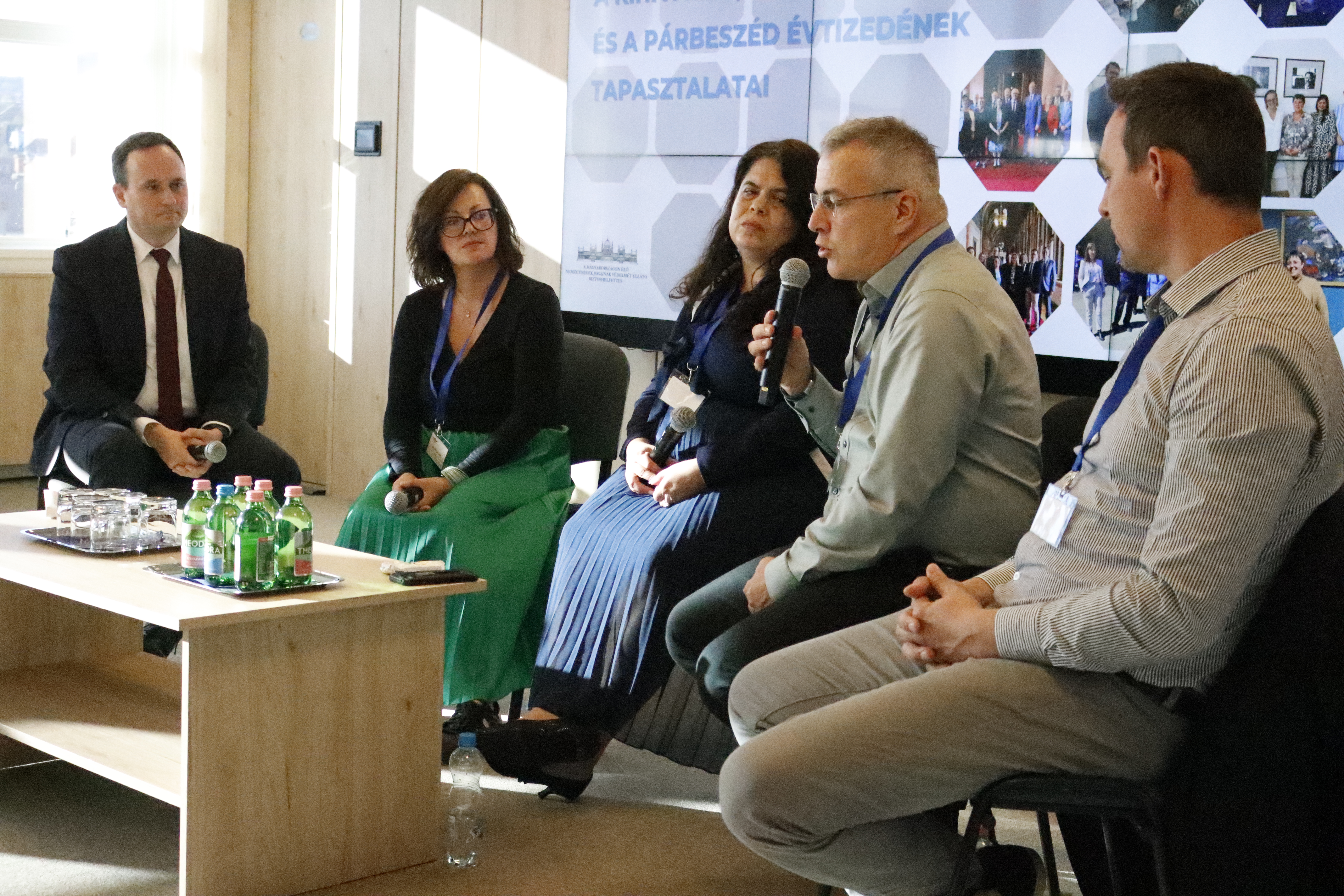
At the close of the conference, the Minority Ombudsman thanked the invited speakers for their contributions, the experts for their active participation, and all those who attended the event.
